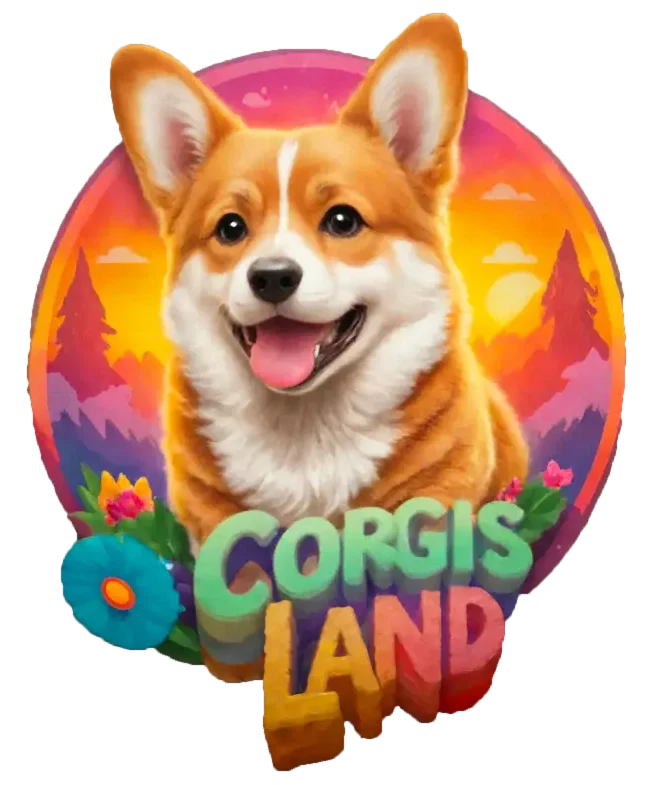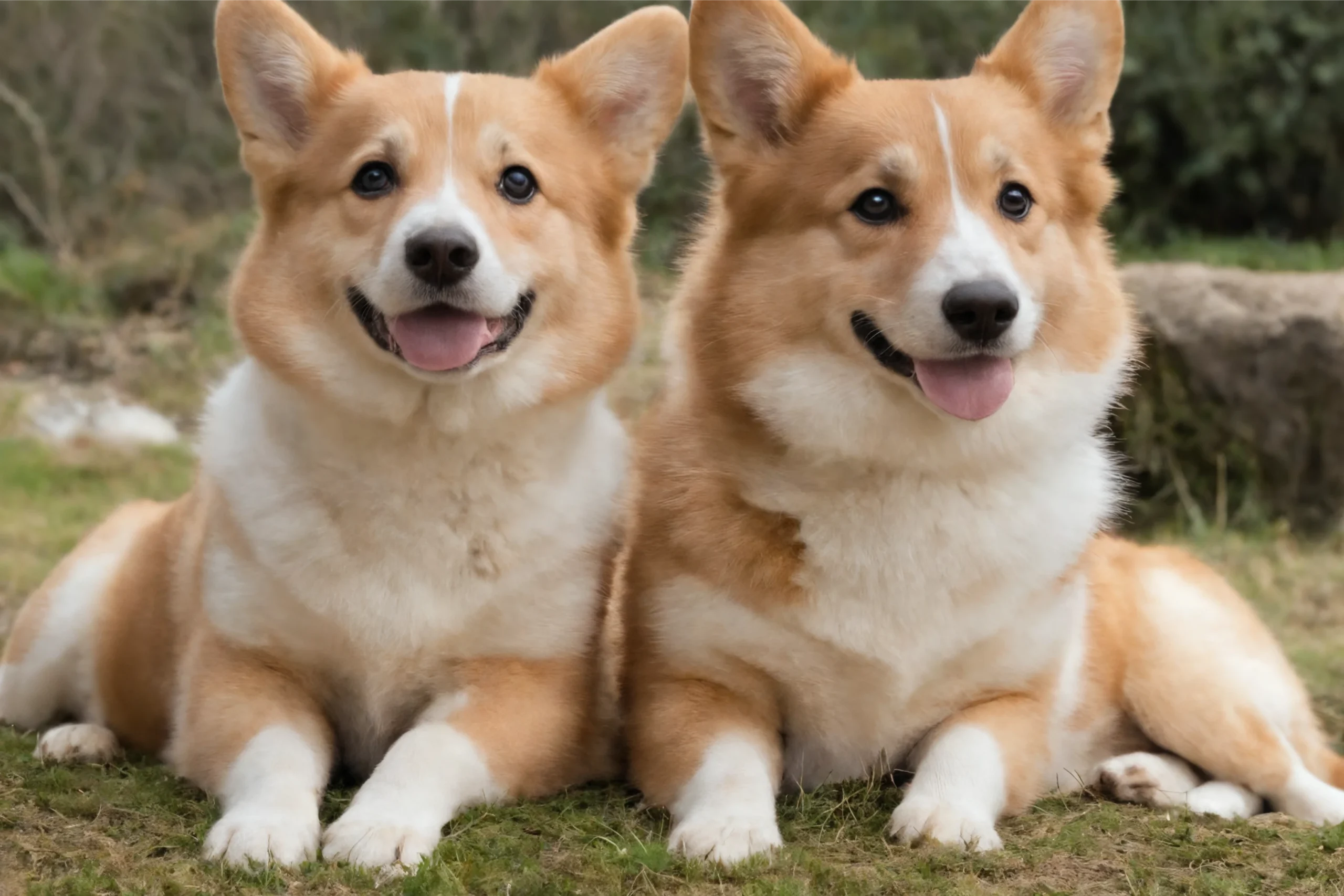Have you ever wondered if there are Corgis without fur? It’s a common misconception, but the truth is, Corgis do not naturally lack fur. Their distinct double coat is one of their defining features. In this article, we will explore the reality behind Corgis without fur, debunk common myths, and compare them to hairless dog breeds.
Corgis have a genetic makeup that determines the type and characteristics of their fur, including shedding and variations in coat length. While they are not heavy shedders, regular grooming is necessary to maintain their coat’s health. We will also provide tips on how to care for your Corgi’s coat to keep it looking its best.
While Corgis do not come in a hairless variety, there are indeed hairless dog breeds out there. We will discuss different hairless breeds and compare them to Corgis to give you a better understanding of the differences between these unique breeds.
In addition, we will debunk common misconceptions about hairless Corgis and help you distinguish natural variations in coat length from potential health issues. Understanding the truth about Corgis without fur is essential for any Corgi owner or enthusiast.

Finally, if you’re concerned about allergies, we’ll explore hypoallergenic alternatives and whether Corgis can be a suitable choice for allergic individuals. We’ll provide lifestyle adjustments and tips for allergic Corgi owners to create a healthy living environment.
Stay tuned for the upcoming sections where we will delve deeper into the fascinating world of Corgis and their coats. Whether you’re a Corgi lover or curious about hairless dog breeds, this article has something for everyone.
Understanding the Corgi Coat: What to Expect
The Corgi coat is one of the defining characteristics of this beloved breed. To fully appreciate the variations in coat length and shedding patterns, it’s crucial to understand the genetic makeup of Corgi fur.
The Genetic Makeup of Corgi Fur
Corgis have a double coat, consisting of a soft, thick undercoat and a coarser outer coat. This unique combination provides insulation and protection from various weather conditions, making it suitable for their origins as herding dogs.
“Corgis have a double coat, consisting of a soft, thick undercoat and a coarser outer coat.”
This double coat is a hereditary trait and is determined by the genes passed down from the Corgi’s parents. It is important to note that Corgis do not naturally lack fur, as some may believe. Instead, their genetic makeup influences the type and characteristics of their coat.
The Reality of Shedding and Corgi Coat Variations
While Corgis are not considered heavy shedders, shedding is a natural process that occurs throughout the year. Regular grooming is necessary to manage their coat and minimize excess fur around the home.
- Brush your Corgi’s coat regularly to remove loose hair and prevent matting.
- Bathe your Corgi as needed, using a mild shampoo formulated for dogs. However, avoid overwashing, as it can strip the coat of its natural oils.
- Trim your Corgi’s nails regularly to ensure their comfort and prevent any issues related to long nails.
Corgis also exhibit variations in coat length. The Cardigan Welsh Corgi is known for its traditional long-haired coat, while the Pembroke Welsh Corgi has a shorter coat, often described as medium-length. Another noticeable variation is the absence of a tail in the Pembroke Welsh Corgi, which further contributes to their unique appearance.
Exploring Hairless Dog Breeds: How Corgis Compare
While Corgis do not naturally lack fur, there are indeed hairless dog breeds that exist. In this section, we will explore different hairless dog breeds and compare them to Corgis. We will discuss the characteristics, temperament, and care requirements of hairless breeds to provide a better understanding of how Corgis differ from these unique breeds.
When comparing hairless dog breeds to Corgis, it’s important to consider their distinct features and care needs. Hairless breeds often have sensitive skin and require special attention to protect them from sunburn and extreme temperatures. They may also need regular moisturizing and bathing to maintain their skin’s health
| Characteristics | Hairless Dog Breeds | Corgis |
|---|---|---|
| Coat | No fur | Double coat with fur |
| Skin sensitivity | High | Low to moderate |
| Temperature sensitivity | High | Low to moderate |
| Temperament | Varying personalities | Playful and outgoing |
| Grooming needs | Moisturizing and bathing | Regular brushing and occasional bathing |
As the table indicates, hairless dog breeds differ from Corgis in terms of coat, skin sensitivity, temperature sensitivity, temperament, and grooming needs. Understanding these differences can help potential dog owners make informed decisions when choosing the right breed for their lifestyle and preferences.
While Corgis may not be hairless, their unique double coat requires regular grooming and maintenance. Corgis are known for their playful and outgoing nature, making them great companions for active individuals and families.
In the next section, we will debunk common myths surrounding hairless Corgis and shed light on natural variations in Corgi coats.
Corgis Without Fur: Debunking the Myths
In this section, we will address common misconceptions about hairless Corgis and clarify the reality behind Corgis without fur. Let’s debunk the myths and shed light on the truth.
Common Misconceptions About Hairless Corgis
There are several misconceptions circulating about hairless Corgis. One common misconception is that hairless Corgis are a separate breed. However, the truth is that Corgis do not naturally lack fur. Their genetic makeup determines the type and characteristics of their fur, including shedding patterns and coat variations.
Another misconception is that hairless Corgis are more prone to health issues. While it is important to remember that individual Corgis may have specific health concerns, being hairless is not inherently linked to health problems. Hairless Corgis, like any other Corgi, can remain healthy with proper care and attention.
Distinguishing Natural Variations from Health Issues
It is crucial to distinguish natural variations in coat length from underlying health issues that may affect a Corgi’s fur. Corgis exhibit variations in coat length, from the long-haired Cardigan Welsh Corgi to the tailless Pembroke Welsh Corgi. These variations are natural and expected within the breed.
However, if you notice drastic changes in your Corgi’s fur, such as excessive shedding, bald patches, or skin irritations, it is essential to consult with a veterinarian. These signs may indicate underlying health issues that need to be addressed to ensure your Corgi’s well-being.
Health and Grooming: Caring for Your Corgi’s Coat
Maintaining the health and appearance of a Corgi’s coat is crucial for their overall well-being. In this section, we will provide you with helpful tips and guidelines on how to properly care for your Corgi’s coat, ensuring that it remains healthy and vibrant.
Grooming your Corgi regularly is essential. Brushing their coat at least once a week helps remove dirt, tangles, and loose hair. It also stimulates the skin and promotes healthy blood circulation. Consider using a slicker brush or a deshedding tool specifically designed for double-coated breeds like Corgis.
Regular baths are important for maintaining a clean and healthy coat. Use a gentle dog shampoo and make sure to rinse thoroughly to avoid any residue. Be cautious not to overbathe your Corgi, as it can strip their coat of natural oils and cause dryness. A bath every six to eight weeks is typically sufficient, unless your Corgi has gotten particularly dirty.
Trimming your Corgi’s nails is another important aspect of their coat maintenance. Long nails can be uncomfortable for your dog and may cause issues with walking or running. Use proper dog nail clippers and trim the nails carefully, avoiding the quick (the pink area inside the nail). If you are not comfortable doing it yourself, you can seek assistance from a professional groomer or a veterinarian.
Along with these grooming practices, it is important to monitor your Corgi’s coat for any signs of health issues. Some common problems that can affect Corgi coats include dermatitis, hot spots, and allergies. Look out for symptoms like excessive itching, redness, hair loss, or abnormalities in the skin. If you notice any concerning signs, consult with your veterinarian for proper diagnosis and treatment.
To summarize, by following these grooming tips and caring for your Corgi’s coat, you can ensure their coat remains healthy, clean, and free from any potential issues. Regular brushing, bathing, and nail trimming, along with monitoring their coat for any abnormalities, are essential for maintaining your Corgi’s overall health and well-being.
Hypoallergenic Alternatives: Are There Corgis For People With Allergies?
For individuals with allergies, owning a dog may seem challenging. However, there are hypoallergenic dog breeds and non-shedding options that can be suitable for people with allergies. In this section, we will explore non-shedding and hypoallergenic dog breeds and discuss whether Corgis can be a suitable choice for allergic individuals. We will also provide lifestyle adjustments and tips for allergic Corgi owners to minimize allergens and maintain a healthy living environment.
Non-Shedding and Hypoallergenic Dog Breeds
When it comes to finding a dog breed that is hypoallergenic and non-shedding, there are several options to consider. These breeds have hair instead of fur or shed less, which can help reduce the amount of allergens in the environment. Some popular non-shedding and hypoallergenic dog breeds include:
- Poodle
- Bichon Frise
- Maltese
- Shih Tzu
- Yorkshire Terrier
These breeds are known for their minimal shedding and reduced dander production, making them suitable for individuals with allergies.
Lifestyle Adjustments for Allergic Corgi Owners
While Corgis are not considered hypoallergenic or non-shedding, there are still steps you can take to minimize allergens and create a healthier environment for both you and your pet. Here are some lifestyle adjustments and tips for allergic Corgi owners:
- Regular grooming: Brush your Corgi’s coat frequently to remove loose hairs and dander.
- Use hypoallergenic products: Opt for hypoallergenic shampoos and grooming products to minimize skin irritation.
- Vacuum and clean frequently: Keeping your home clean, especially in areas where your Corgi spends time, can help reduce allergens.
- Create designated pet-free areas: Designate certain areas of your home as pet-free zones to minimize exposure to allergens.
- Consider air purifiers: Investing in an air purifier with a HEPA filter can help remove allergens from the air.
By implementing these lifestyle adjustments and following proper grooming practices, you can still enjoy the companionship of a Corgi while managing your allergies effectively.
| Breed | Shedding Level | Hypoallergenic |
|---|---|---|
| Poodle | Low | Yes |
| Bichon Frise | Low | Yes |
| Maltese | Low | Yes |
| Shih Tzu | Low | Yes |
| Yorkshire Terrier | Low | Yes |
Conclusion
In summary, Corgis do not naturally lack fur and are not hairless dogs. They have a unique coat that requires regular care and grooming. It is important to understand the genetic makeup of Corgi fur and debunk common misconceptions about hairless Corgis.
By providing proper care and attention to your Corgi’s coat, you can ensure their health and well-being. Regular grooming practices such as brushing and bathing will help keep their coat clean and free from mats. Additionally, understanding the shedding patterns and variations in coat length will allow you to better manage their fur.
While Corgis may not be hypoallergenic, there are options and adjustments available for individuals with allergies. If you are considering a Corgi and have allergies, it is recommended to spend time with Corgis before bringing one into your home to assess any potential allergic reactions. Taking preventive measures such as maintaining a clean living environment and minimizing exposure to allergens can also help alleviate symptoms.
Whether you are a Corgi owner or enthusiast, understanding the reality behind Corgis without fur is essential. By embracing their unique coat characteristics and providing appropriate care, you can enjoy the companionship and charm that Corgis bring to your life.
FAQ
Do Corgis naturally lack fur?
No, Corgis do not naturally lack fur. They have a genetic makeup that determines the type and characteristics of their fur, including shedding and variations in coat length.
Are there hairless Corgis?
No, hairless Corgis are a myth. Corgis have a double coat consisting of a soft, thick undercoat and a coarser outer coat.
What are the different coat variations in Corgis?
Corgis can exhibit variations in coat length, from the long-haired Cardigan Welsh Corgi to the tailless Pembroke Welsh Corgi.
What are some hairless dog breeds?
There are several hairless dog breeds, such as the Chinese Crested, Mexican Hairless (Xoloitzcuintli), and Peruvian Inca Orchid.
How do Corgis compare to hairless dog breeds?
Corgis have a distinct double coat, which sets them apart from hairless dog breeds. Hairless breeds lack fur entirely or have minimal hair on their bodies.
Are there health issues associated with hairless Corgis?
Hairless Corgis do not exist, so there are no specific health issues associated with them. However, all Corgis may be prone to certain health conditions related to their breed.
How can I care for my Corgi’s coat?
Regular grooming practices, such as brushing, bathing, and trimming nails, are essential for maintaining a Corgi’s coat. Additionally, regular vet check-ups can help identify and address any coat-related health issues.
Are there hypoallergenic Corgis for people with allergies?
Corgis are not considered hypoallergenic, and they do shed. However, some individuals with allergies may tolerate Corgis better than other breeds. It is essential to spend time with the breed and consult with a healthcare professional before bringing a Corgi into a home with allergies.
What lifestyle adjustments can allergic Corgi owners make?
Allergic Corgi owners can minimize allergens by keeping their homes clean, using air purifiers, and creating designated pet-free zones. Additionally, regular bathing and grooming of the Corgi can help reduce allergens.

